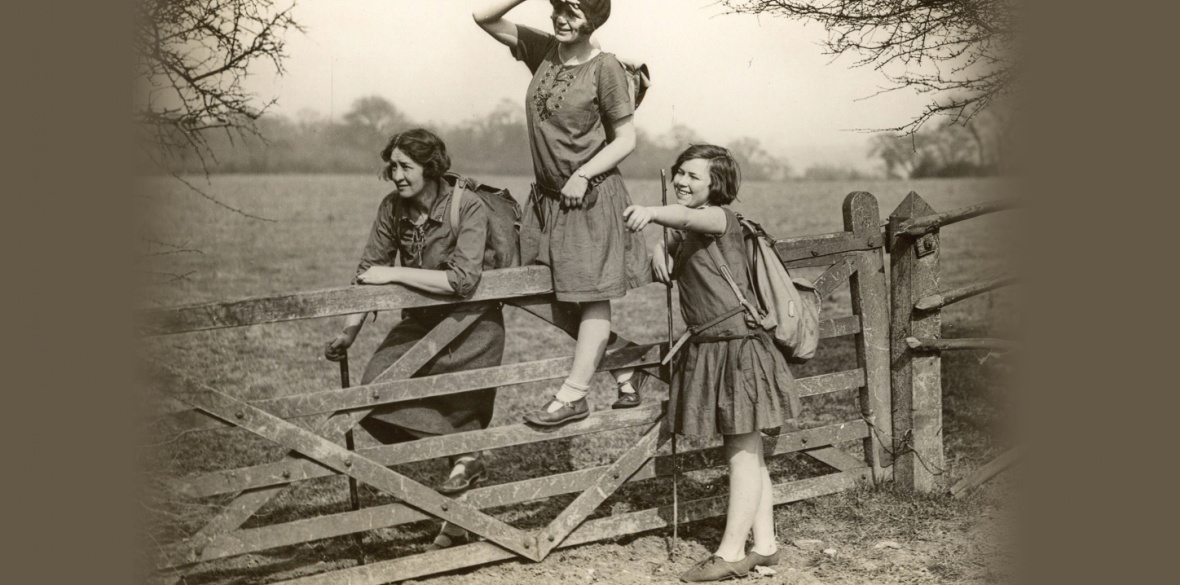This is the last article you can read this month
You can read more article this month
You can read more articles this month
Sorry your limit is up for this month
Reset on:
Please help support the Morning Star by subscribing here
THIS time of year we are urged to get out more, enjoy the fresh air and get back in touch with nature and the countryside or our local park.
It’s a familiar theme in the mainstream media, featuring health gurus and experts in emotional wellbeing.
There are proven benefits to physical exercise for those suffering mental illness and in recent times GPs and other health staff have been prescribing exercise or visits to local health centres.
A new generation of young people are also more susceptible to mental illness nowadays, with levels of depression, anxiety, self-harm and suicides increasing.
They are often portrayed as addicted to social media, with all the resulting risks and harms to their mental and physical health. Getting them outdoors can be a challenge, so organised youth groups can be important.
Youth groups linked to the British military and the Scouts dominate this sector, often acting as conduits to recruitment to the armed forces. But the Scout Association reported the biggest decline in membership in the UK in 2021.
Ministers have backed efforts for youth groups to recruit more members, while simultaneously slashing budgets for local authority youth services which targeted the most deprived and vulnerable communities.
So it’s worth remembering that about 100 years ago the Woodcraft Folk was founded as a different form of youth organisation, with its founding principles rooted in co-operative, pacifist socialist ideas.
The name “Woodcraft” was used by writer and naturalist Ernest Thompson Seton at the start of the 20th century when setting up the US proto-Scouting organisation, Woodcraft Indians, and in this context meant the skill of living in the open air, close to nature.
While sharing many of the same historical roots as the Scouting movement, Woodcraft Folk’s direct antecedent was the Kindred of the Kibbo Kift, an organisation led by ex-Scout commissioner for woodcraft and camping John Hargrave, who had broken with what he considered to be the Scouts’ militaristic approach in the years immediately after the first world war.
The Scouts founder Robert Baden-Powell was a high-ranking army officer who fought in the Boer war and other campaigns in southern Africa.
He ordered the execution of several tribal leaders who fought against British colonial rule and had surrendered. In 2010 newly declassified MI5 files revealed that Lord Baden-Powell was invited to meet Adolf Hitler in the 1930s after holding friendly talks with Hartmann Lauterbacher, chief of staff of the Hitler Youth, about forming closer ties with the organisation.
A hand-written note on the MI5 file states: “Lauterbacher’s visit was a success, especially his interviews with Baden-Powell leading to removal on [the] bar on wearing uniforms in Germany for English groups.”
Woodcraft Folk was established by Leslie Paul in 1925 after the south London co-operative groups challenged Hargrave’s authoritarian tendencies over his refusal to recognise a local group called The Brockley Thing and broke away from the Kindred.
In its early days it was very similar to the Kibbo Kift, with a strong pagan and anti-capitalist emphasis, but gradually developed its own distinct ethos.
In the 1920s and ’30s it had close ties to the Co-operative Societies and to the labour, pacifist, early feminist and trade union movements, which provided a base for recruiting both adults and children and a practical focus which avoided it sharing the fates of the Kibbo Kift and Order of Woodcraft Chivalry, which both became increasingly eccentric and esoteric and were both moribund by the 1950s.
The Woodcraft Folk remained mainly based in working-class districts of industrial towns and cities, notably London, Coventry and Sheffield, and with strong connections to the Co-operative Societies until the 1960s when it began to acquire a larger middle-class membership.
In 1963 the Sunday Telegraph ran a “red scare” story suggesting that the Woodcraft Folk was being infiltrated by communists under the direction of Communist Party headquarters.
No evidence was found for this and in a press statement issued by Woodcraft HQ, the leadership maintained that “group leaders were not judged according to any political badge but on the basis of their commitment to social education, co-operation, democracy, and working for peace and a new social order.”
During the 1970s to 1990s there was a large increase in new “districts” (local branches) being founded in suburbs and small towns, some of which were short-lived.
Recruitment of new members slowed in the 1990s, apparently due to Scout and Cub groups admitting girls, which removed the Woodcraft Folk’s former appeal as the only organisation of its kind welcoming children of both sexes. There are currently about 80 Woodcraft groups in the UK.
In the 1990s there was considerable debate within the movement, including over whether to keep or abandon the “folk shirt” (a green overshirt worn with badges) and over the role of camping and other outdoor activities.
The Woodcraft Folk had traditionally attached great importance to outdoor activities and to urban children having access to the natural world, but camping has had a more peripheral role in recent years.
The history of the Woodcraft Folk within the labour movement can be seen in the book produced by Woodcraft Folk called Fashioning a New World which it commissioned for its 75th birthday.
Other historical references exist, for example in Co-operative Banners, a book available from the Rochdale Pioneers Museum, which contains banners of the Woodcraft Folk.
Woodcraft Folk historical records are held at the University College London. Much of these archives can be viewed online including resources on how to use them for young people’s groups.
Steven Walker is author of Children Forsaken: Child Abuse from Ancient to Modern Times (Critical Publishing, 2021).












